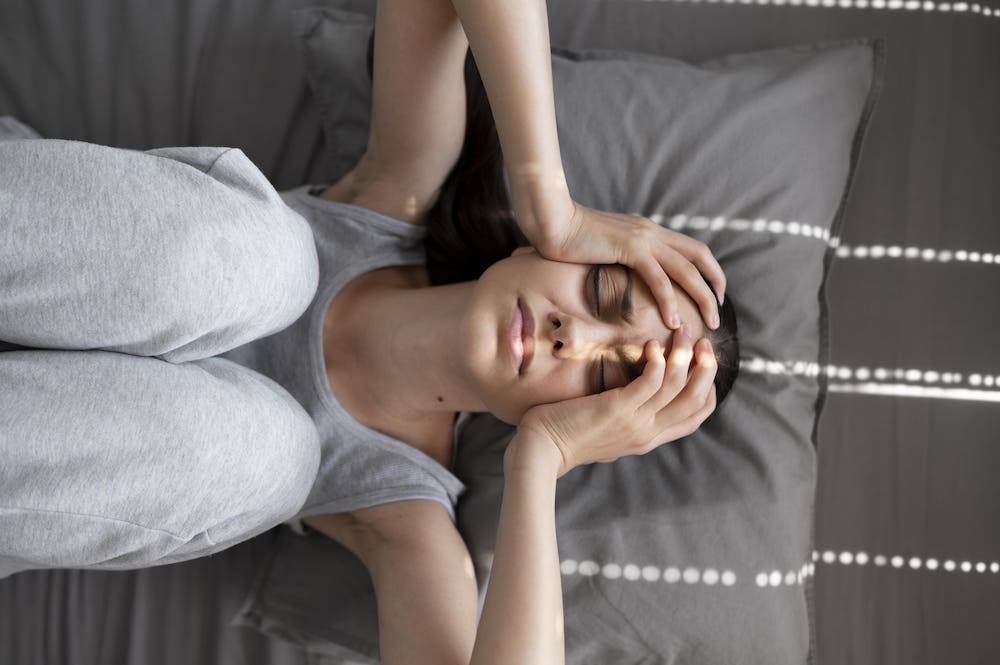
Bipolar delusions occur in 60%+ of people with bipolar disorder and are more common than hallucinations. The most common delusions in bipolar patients include:
- Grandeur, or the person being the best at most things
- Reference, or when the person believes everything involves them
- Out to get me, or someone or something is trying to cause you harm or distress
- Somatic, or when the person believes something is inherently wrong with them
If bipolar disorder delusions are left untreated, they can last for 4 – 13 months. Patients who are in a depressive episode may have symptoms that last for 2+ weeks.
Bipolar delusions are serious to the person experiencing them and must be understood to be properly managed. We’ll discuss delusions in bipolar disorder, the impact they have on the person and practical ways to cope with and manage symptoms properly.
Treatments and Strategies for Coping With Bipolar Delusions
Bipolar delusions can come in two main forms:
- Mood-congruent: In this case, the delusions match with the person’s moods.
- Mood-incongruent: In this case, delusions do not match the patient’s moods.
There’s some evidence that when symptoms match the person’s mood, they’re often more severe.
Recognizing the symptoms of a delusion is difficult because they can differ from patient to patient. A person may struggle to organize their thoughts, suffer from anxiety or say statements that seem off.
You may also notice that the person’s perception of reality is not accurate, and they may begin to struggle with daily activities, such as work or school. Thoughts of suicide may occur along with strange emotional responses.
It’s important for friends, family and caretakers to understand that bipolar delusions and how to respond, as they are not at all routine. Patients believe everything that is in the delusion is real because it is real to them.
Note: Bipolar delusions and delusional disorder are two different things. A delusional disorder is something that may occur, but they’re not always true. Classification of a disorder means that the individual has experienced the delusion for a period of one month or longer.
Treatment for such a disorder can include one or a combination of the following:
Medication Management
Bipolar psychosis, and delusions, may be treated with numerous antipsychotic medications. A doctor will prescribe the right medication for the patient based on their discretion, but common options include:
- Asenapine
- Haloperidol
- Ziprasidone
- Numerous others
Each medication comes with its own risk of complications and long-term side effects. Medication may help a patient prepare themselves for further treatment options, such as mindfulness and relaxation techniques.
Psychotherapy is another common option for patients with bipolar delusions.
Psychotherapy Approaches
Medication for delusions is often the first choice for treatment, yet psychotherapy is the next option for patients. Many sufferers also have difficulty taking medications on a regular basis, rendering the treatment ineffective.
Psychotherapy may be administered in multiple forms, including but not limited to:
Cognitive Behavioral Therapy (CBT)
CBT improves the outcome of treatment plans and involves therapy that helps patients learn how to change their thought patterns. For example, a therapist may role-play with their patient and help them go through triggering events.

The goal of CBT is to help the patient face their fears directly, followed by:
- Techniques to calm the mind
- Strategies to relax the body
Patients who undergo CBT often feel more stable and are better equipped to manage their triggers. The ultimate goal for a patient is to recognize unhealthy patterns or signs that they’re entering into a delusion.
Often, CBT can lower the frequency of episodes and their duration.
Family Focused Therapy (FFT)
FFT focuses less on the patient and more on the family members of the patient. Active family members can help with a person’s treatment by learning:
- Signs of manic episodes
- Signs of depressive episodes
- How to identify bipolar disorder delusions
Through FFT, it’s possible for family members to know when the patient stops taking their medication. If the patient is doing well, it’s the right time to seek FFT.
Note: Patients are often not receptive to family members being involved in their treatment plans. If the patient is not accepting of FFT, it is unlikely to be effective.
Interpersonal And Social Rhythm Therapy (IPSRT)
IPSRT helps individuals by teaching patients the skills to improve medication schedules, manage stress and minimize any disruptions that may get in their way. This form of therapy has one main goal: reduce changes in a person’s daily routine.
The Role of Hospitalization and Outpatient Programs
In severe cases, hospitalization and outpatient programs may have a role in helping someone with bipolar delusions. For example, a patient with severe depressive episodes may be at risk of harming themselves.
Hospitalization or outpatient programs can help a person in this state overcome the delusion.
Reducing the risk of readmission is crucial to the success of hospitalization and outpatient programs. Patients may be in the care of professionals for 30 days or more.
Cognitive Techniques, Mindfulness and Relaxation Techniques
Finally, multiple other techniques may be used to calm delusions. Additional techniques that may help a person with this condition include:
- Cognitive techniques: CBT is one of the more common options for treating delusions, which we touched on previously. These techniques help a person better deal with their emotions by recognizing when an episode is close to presenting itself.
- Mindfulness: Techniques that incorporate mindfulness are shown to be effective and often one of the most beneficial in treating bipolar disorder. Learning to be mindful may incorporate many approaches, such as mindful breathing, meditation, or even movements.
- Relaxation techniques: Episodes may also include anxiety and stress. Various relaxation techniques may be employed to help the patient better manage episodes and learn how to calm themselves in all areas of life.
If patients combine multiple treatment options together, they often allow for the most effective approach to managing bipolar delusions. Working with a psychologist can help minimize episodes and allow the person to live the best quality of life.

Final Thoughts
Can bipolar disorder cause delusions? Yes, but with support from friends and family, it’s possible to cope with them. Education and understanding can go a long way in helping sufferers manage their symptoms properly.
The right combination of treatments and strategies can lower the duration of bipolar delusions and help patients regain their quality of life.